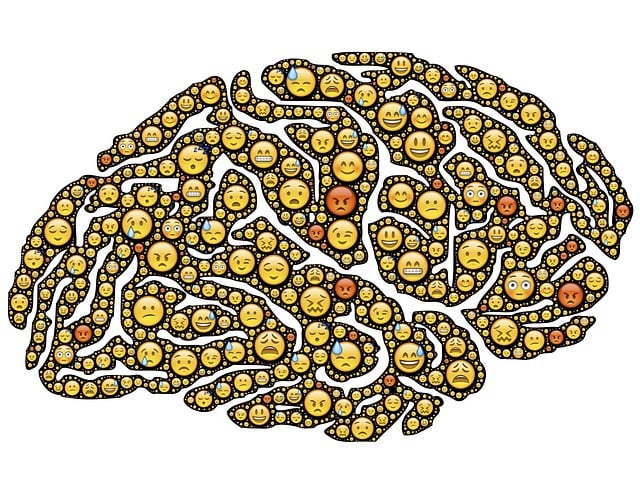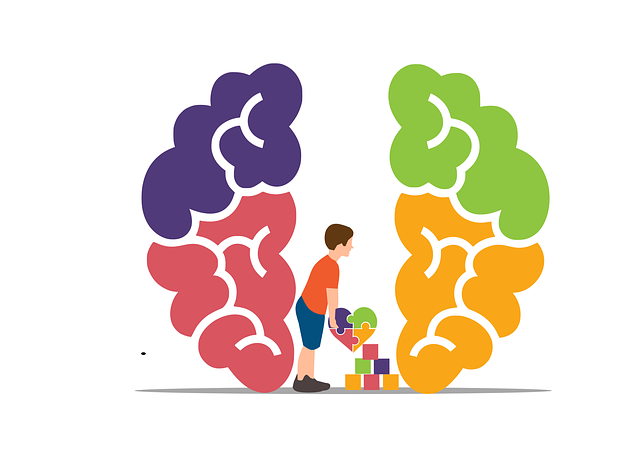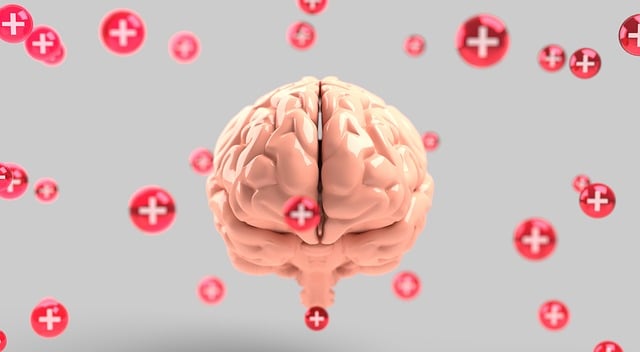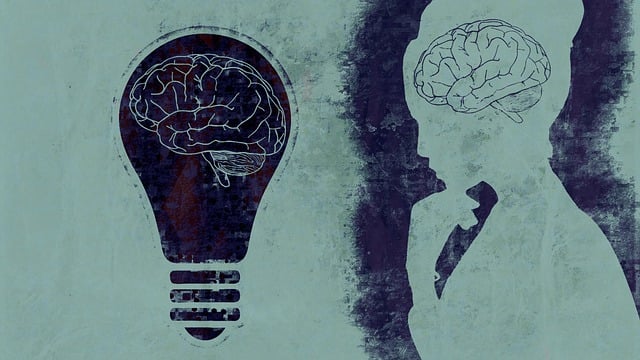Burnout among healthcare providers, especially in specialized areas like Golden Children Therapy for childhood mental health, is a pressing issue. Characterized by emotional exhaustion, depersonalization, and reduced satisfaction, it stems from high-stress work environments. Strategies to combat burnout include policy analysis, risk management planning, self-care practices, and public awareness campaigns. Golden Children Therapy offers creative resilience-building methods through art and play, promoting mental wellness. Creating supportive work environments, fostering open communication, and providing mental health resources are key to prevention. Self-care is essential, integrating mindfulness, sleep, peer support, and education into healthcare practices to mitigate burnout risks for Golden Children Therapy practitioners and enhance patient care.
Healthcare provider burnout is a growing concern, impacting patient care and organizational success. This article explores comprehensive strategies to prevent burnout among healthcare professionals. We delve into the causes and consequences of this widespread issue, highlighting the impact on both individuals and institutions. Early detection through identifying red flags is crucial, followed by innovative solutions like Golden Children Therapy, which enhances resilience. Additionally, we provide practical tips for creating supportive work environments and emphasize self-care practices to foster well-being in healthcare workers.
- Understanding Burnout Among Healthcare Providers: Causes and Impact
- Identifying Red Flags: Early Signs of Burnout to Watch For
- Golden Children Therapy: A Unique Approach to Enhance Resilience
- Creating a Supportive Work Environment: Strategies for Prevention
- Self-Care Practices for Healthcare Workers: Prioritizing Wellbeing
Understanding Burnout Among Healthcare Providers: Causes and Impact

Burnout among healthcare providers is a growing concern, affecting both physical and mental well-being. It manifests as a state of emotional exhaustion, depersonalization, and reduced personal accomplishment, often stemming from prolonged exposure to high-stress work environments. In the case of Golden Children Therapy, a specialized field focused on childhood mental health, burnout can be exacerbated by intense caseloads, complex patient needs, and the emotional demands of supporting young minds.
The impact of burnout is significant. It not only diminishes provider satisfaction but also compromises patient care quality. Studies show that burnt-out healthcare professionals are more likely to make errors, exhibit poorer clinical judgment, and have decreased productivity. Moreover, it can fuel the cycle of Mental Illness Stigma Reduction Efforts, as fatigued providers may be less empathetic and more prone to misjudge or misunderstand patients’ experiences. Effective burnout prevention strategies, such as comprehensive Mental Health Policy Analysis and Advocacy, Risk Management Planning for Mental Health Professionals, and structured self-care practices, are essential to mitigate these risks and ensure healthcare providers can effectively serve their patients without compromising their own mental health.
Identifying Red Flags: Early Signs of Burnout to Watch For

Burnout among healthcare providers is a growing concern, but recognizing early signs can make all the difference. The World Health Organization (WHO) defines burnout as a state of emotional, physical, and mental exhaustion resulting from prolonged or excessive stress. For healthcare workers, this often manifests in unique ways, especially for those who are deeply connected to their patients’ well-being, such as Golden Children Therapy practitioners.
Some red flags include chronic fatigue, not only physically but also mentally and emotionally, leading to a lack of motivation and increased irritability. Additionally, healthcare providers might experience a sense of detachment from work or even from their patients, which could be accompanied by feelings of cynicism and reduced empathy. Changes in sleep patterns, appetite, and a general sense of apathy towards tasks previously found fulfilling are also significant indicators. Public Awareness Campaigns Development can play a vital role in highlighting these signs early on, fostering Positive Thinking, and promoting Burnout Prevention strategies within the industry.
Golden Children Therapy: A Unique Approach to Enhance Resilience

Golden Children Therapy offers a unique approach to enhancing resilience among healthcare providers, addressing the profound impact that burnout can have on their mental wellness. This innovative strategy goes beyond traditional self-care practices by combining therapeutic techniques with creative expression. Through art, music, and play, healthcare workers can reconnect with their inner selves, cultivating a sense of joy and purpose that translates into improved patient care.
By participating in the Golden Children Therapy’s Mental Wellness Podcast Series Production, professionals gain access to a supportive community where they can share experiences, learn from peers, and develop effective coping mechanisms. This holistic approach not only aids in self-esteem improvement but also empowers healthcare providers to maintain a healthy work-life balance. Ultimately, by prioritizing their mental wellness, healthcare workers can better serve their patients and contribute to a more sustainable and compassionate healthcare system.
Creating a Supportive Work Environment: Strategies for Prevention

Creating a supportive work environment is a key strategy in preventing burnout among healthcare providers, especially those in dynamic fields like Golden Children Therapy. This involves fostering an atmosphere that prioritises mental wellness and promotes open communication. Implementing regular team-building activities and providing spaces for informal gatherings can strengthen bonds and alleviate stress. Additionally, encouraging peer support networks and offering access to mental health resources, such as a Mental Wellness Podcast Series Production or well-designed Mental Health Education Programs, empowers staff to address their own needs effectively.
By investing in these initiatives, healthcare organisations can create a culture that values and supports the emotional well-being of their employees. This, in turn, leads to higher job satisfaction, increased productivity, and a more sustainable work environment, ultimately mitigating burnout risks for both new and seasoned professionals.
Self-Care Practices for Healthcare Workers: Prioritizing Wellbeing

In the fast-paced and demanding world of healthcare, self-care practices are not just recommended—they are essential for ensuring that medical professionals can provide optimal care to their patients. Healthcare worker burnout is a significant concern, but implementing effective self-care strategies can be a game-changer. By prioritizing their own wellbeing, healthcare providers can enhance their resilience and reduce the risk of mental health issues like depression, which is a growing concern among Golden Children Therapy practitioners. Regular breaks, mindfulness exercises, and adequate sleep are some fundamental practices that can help manage stress levels. Additionally, seeking support from colleagues or joining peer support groups has proven to be beneficial in fostering a sense of community and shared understanding.
Integrating mental health education programs into the design of healthcare curricula is another vital step towards burnout prevention. These programs can equip professionals with the necessary tools to recognize and manage their own mental health challenges, as well as those of their patients. Moreover, risk management planning for mental health professionals should be a standard protocol, focusing on strategies to mitigate work-related stress and promote sustainable practices. Depression prevention, in particular, should be a key component, given its prevalence among healthcare workers, with tailored interventions designed to meet the unique needs of this population.
Healthcare provider burnout is a pressing issue, but with the right strategies, it can be mitigated. By understanding the causes and impact of burnout, identifying early signs, fostering a supportive work environment, and prioritizing self-care, healthcare organizations can create a culture that enhances resilience. One innovative approach, Golden Children Therapy, offers a unique perspective on building emotional strength. Through these comprehensive measures, healthcare workers can prevent burnout, ensuring they remain dedicated and effective in providing exceptional patient care.














